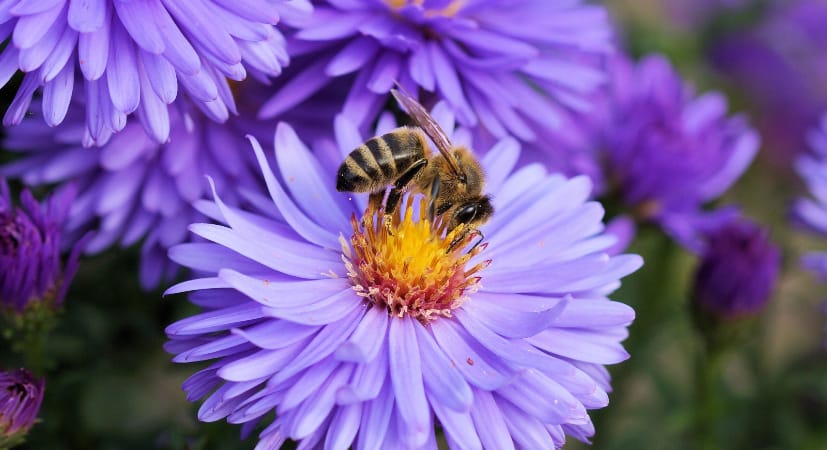After a long Northeast Ohio winter, it’s always nice to get outside and start gardening! Before you begin, consider these tips for sustainable spring gardening.
Wait to clean out your garden beds
When the weather warms, it’s tempting to get out in your garden and start clearing the dead leaves, flower stalks, and other plant debris. However, it’s best to hold off on this spring gardening task until temperatures are consistently above 50 degrees. Native pollinators and other beneficial insects overwinter in hollow stems and under leaves, and they need time to emerge. Read more about how to properly clean your garden in the spring to protect pollinators and other wildlife.
Maintenance of your compost bin or pile
If you filled your compost bin in the fall and continued to add food scraps to it over the winter, you may have finished compost in the bottom of your bin. Spring can be a good time to remove finished material and spread it in your garden. Return any unfinished materials to your bin or pile and allow them to finish breaking down while you add new material.
Starting a new compost bin or pile
If you’re starting a bin or pile from scratch, save the dead leaves and plant stalks that you clean out of your garden – they are good brown materials for your pile. Compost piles require a ratio of 2/3 brown materials (dead leaves, plant stalks) to 1/3 green materials (green plants, grass clippings, fruit and vegetable scraps). It can be challenging to start a compost pile in the spring due to the limited amount of brown materials available. To get your compost pile going, consider adding alternative brown materials like straw, shredded paper or cardboard, and wood chips. Be sure to “sprinkle” it in so it doesn’t form clumps.
For more information on getting started composting, attend one of our free upcoming Backyard Composting 101 webinars or read more about composting and the equipment we sell at the Cuyahoga County Solid Waste District.
Tips for Reducing Plastic Waste
Buy mulch, soil, and compost in bulk instead of plastic bags. It’s easier than hauling heavy bags, and you won’t have to throw away non-recyclable plastic bags. Plastic bags belong in the trash, not your yard waste bag or recycling cart. If you can’t use a full order of bulk mulch or soil, find a neighbor to share an order with you.
Many nurseries and local farms will take your empty plastic flower pots back and reuse them. Ask at the counter when you purchase your plants. You can also reuse them for starting your own seeds at home or offer empty pots on sites like Freecycle.org or Buy Nothing groups. Otherwise, flower pots belong in the trash, not your recycling cart!
Remember: the only items that belong in yard waste bags are leaves, twigs, and other plant materials/debris. No plastic bags, flower pots, rocks, or soil.
Now get out there, get growing, and enjoy a more sustainable yard and garden!
POSTED ON:
